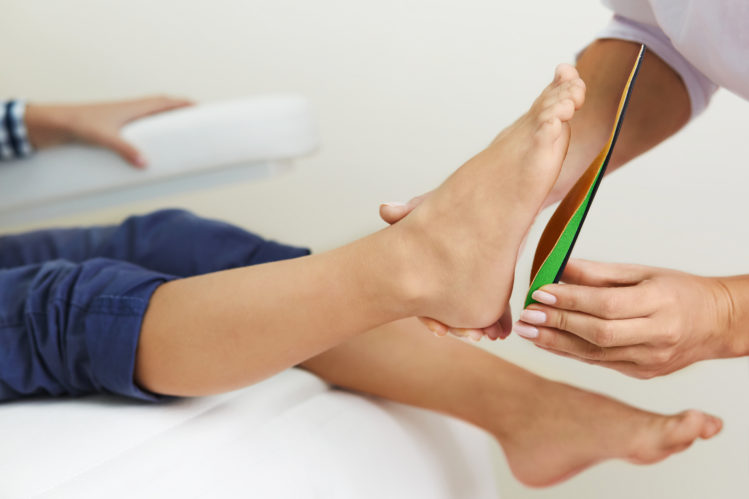The skin sores known as foot ulcers are a serious risk to people with diabetes. This is because the long-term complications of diabetes often include neuropathy and circulatory problems. Without prompt and proper treatment, a foot ulcer may require hospital treatment.. Untreated foot ulcers may lead to gangrene and amputation.
Bunions are another problem which can progress from mildly painful to causing complications such as bursitis, metatarsalgia, and hammertoe. A bunion is a painful bony bump that develops slowly on the inside of the foot at the big toe joint. Over time, the normal structure of the bone changes, resulting in the bunion bump.
Many foot problems are treated non-surgically. Narrow or high-heeled shoes have been blamed for either causing or aggravating bunions and foot ulcers. Issues like interior seaming or lack of support can also aggravate conditions. Custom orthopedic shoes are part of a conservative protocol for relieving these foot problems.
The peripheral neuropathy that commonly accompanies diabetes often prevents patients from feeling the foot irritations that lead to serious foot ulcers. Along with numbness in the extremities, diabetes creates poor circulation that can slow healing. Custom orthopedic shoes for diabetes provide better air circulation. They’re also constructed from softer fabric, and omit interior seams, in order to prevent the kind of foot irritation that leads to infected calluses and foot ulcers.
For bunions, the main goals are both to provide enough room for the bony protrusions, and to prevent bunions from becoming swollen and painful. Custom orthopedic shoes for bunions allow for plenty of toe room. A rounded shape in the toe area, as well as flexible fabric, is ideal. Arch support and lower heels also ensure that the toes aren’t taking on the brunt of each footfall.
Instead of buying over-the-counter shoe inserts for generalized support, it’s best to wear shoe orthotics customized to your condition and to your foot shape and size. Areas on your feet which are prone to irritation are given special cushioning and the irritation to your foot is minimalized. For more information on custom foot orthotics, please contact your local Green Prosthetics office.

